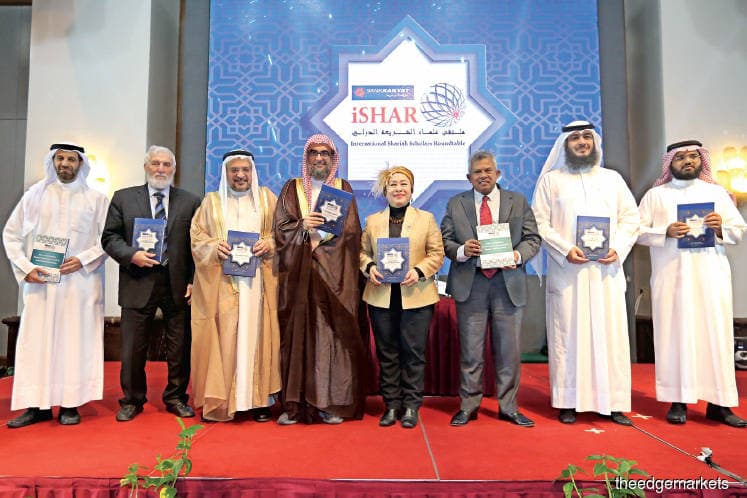
This article first appeared in The Edge Financial Daily on October 31, 2019
KUALA LUMPUR: Bank Rakyat said Islamic finance (IF) institutions need to rethink their roles for the current times and urged them to look at how they can help address issues faced by the world currently.
In a statement, Bank Rakyat chairman Datuk Noripah Kamso had urged IF stakeholders attending the International Islamic Shariah Scholars Roundtable (iSHAR) to go beyond the “banking mindset” and find ways to take on a more active role in spurring the development of society.
iSHAR is co-organised by Bank Rakyat and International Shari’ah Research Academy for Islamic Finance.
The two-day roundtable saw more than 20 shariah scholars and Islamic banking practitioners from Malaysia, the United Arab Emirates, Turkey, Saudi Arabia, Kuwait, Syria, Bahrain and Jordan.
“Islamic finance as an industry needs to move past the standard banking mindset and economic activity in societies. We need to be a catalyst for sustainable development and to create platforms for a co-dependent economic system.
“For this, we need clarity and consensus in ruling and framework on how we approach current issues and the rising culture of innovation in business. We need clarity in legal and arbitration rulings not only for these innovation but for any innovation that may come up in conventional banking and how we, if required, replicate that in Islamic banking,” she said.
Noripah added that IF stakeholders need to fully understand the implications of disruption in the industry, as tools such as zakat, waqf and sadaqah can be leveraged upon to bridge financing gaps as well as promoting social and economic inclusion through promoting and spurring economic activities in societies.
She said that IF institutions should also participate in offering solutions to governments, the private sector and non-governmental organisations.
“Globally, we face a myriad of new disruptions. They range from building co-dependent institutions and societies to addressing the dire income inequality in societies. We must ask ourselves if our own system is truly ethical in its actions,” she said.
“We must also look at how active we are in the empowerment of women in societies, as when you educate a woman, you educate a village and eradicate poverty.
“Of importance is also addressing issues relating to youth in our societies. The young are moving further and further away from our belief system as they find our rules very cumbersome and in many instances beyond their comprehension,” Noripah added.
She also encouraged participants of the forum to discuss climate change and what IF institutions can do to assist in resolving the issue.
“The regulatory framework needs to address the unique characteristics and attributes associated with Islamic finance industry for these times. They too may need to rethink their roles. This is an area that requires work not only in Malaysia but also globally.
“We need to ascertain how much the state decides, and where society intervenes. Bank Rakyat would be keen to be involved in the development of this framework with the necessary local and global oversight bodies and partners,” Noripah added.
During the event, the bank launched the Studies and Recommendations of the second Bank Rakyat International Shariah Scholars Roundtable book which presents issues related to waqf and the role of IF institutions in bettering the socio-economic status of communities.